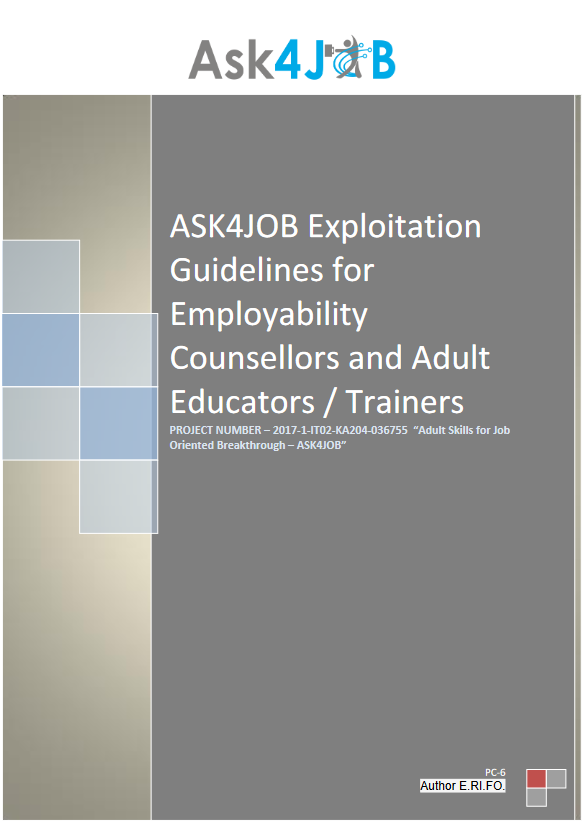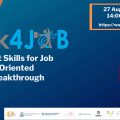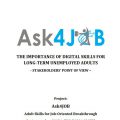
30 Jun GUIDELINES FOR THE ASK4JOB PATHWAY EXPLOITATION
30 Jun, 2020
Guidelines for the ASK4JOB pathway exploitation in activities of specialised job orientation were developed by the ASK4Job project consortium for career counsellors, adult educators or trainers working with unemployed adults and assisting learners with low digital skills to strengthen their cognitive abilities.
Ask4Job is a pathway that supports the development of digital competences and cognitive skills for low-skilled, long-term unemployed adults. It was developed in the context of the “Adult Skills for Job Oriented Breakthrough”project, funded within the context of the Erasmus+ programme by the Italian Agency INDIRE (2017-1-IT02-KA204-036755) and coordinated by the Rome-based employment and training agency ERIFO.
ASK4JOB is an Open educational Resource that could be adopted by labour market operators and adult educators/trainers, in order to realize activities of specialized employment orientation, aimed at supporting job search and individualized development paths, at personal and professional level.
Thanks to the strengthening of digital competences and cognitive abilities, unemployed adults will increase their critical thinking, their knowledge of the technologies and awareness of how to use them for professional and personal development.
The ASK4JOB pathway is mapped to the Digital Competence Framework for Citizen – DigC0mp 2.1, and is built on the first four proficiency levels of digital knowledge (Foundation and Intermediate), opening the possibility of advancing towards more specialized proficiency levels.
Guidelines are also available in Italian on the project website





